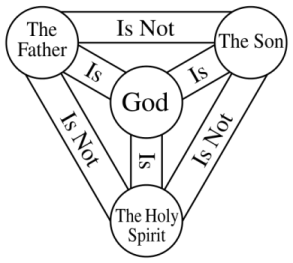Understanding the Trinity: An Exploration of the Triune God
The concept of the Trinity, also known as the Triune God, is one of the most profound and challenging theological ideas within Christianity. The Trinity is a cornerstone of Christian doctrine, yet it remains a mystery that theologians and believers alike grapple with understanding. This article aims to explore the nature of the Trinity, its definition, and how it is presented in Scripture.
What is the Trinity?
The Trinity can be defined as the belief that God is one in BEING and three in PERSON. This means that within the one essence of God, there are three distinct persons: the Father, the Son (Jesus Christ), and the Holy Spirit. Each of these persons is fully God, sharing the same divine nature, yet they are distinct in their personhood and roles.
To understand this better, we must differentiate between "being" and "person." A being is what you are, while a person is who you are. For example, what I am is a human being; who I am is Chris Lee. Humans are one being and one person. In contrast, God is one being who exists as three persons: Father, Son, and Holy Spirit.
The Challenge of the Trinity
The Trinity is undeniably one of the most difficult concepts to comprehend. This complexity often leads to questions such as, "If all are God, how can Jesus be God when He said the Father is greater than Him?" To address this, consider an analogy: I can say that a president is greater than me because of their role and authority, but they are no more human than I am. Similarly, the Father is greater than the Son in terms of role and function, but in essence, both are equally God.
If the concept of the Trinity were a human invention, it would likely be much simpler to understand. Many pseudo-Christian groups simplify the Trinity through heresies, making their beliefs more accessible but ultimately misleading. True Christian doctrine, however, embraces the complexity and mystery of the Trinity.
Nature and Scripture: Revealing God
Nature teaches us what God is: the infinite Creator of heaven and earth. Scripture, on the other hand, reveals who God is. Christians worship Jesus Christ, who is God. He is also the Son of the Father, who is God, and together they send the Spirit, who is also God. This intricate relationship is known as the Trinity, short for "tri-unity," explaining how God is three in one.
God is all-powerful, all-knowing, and eternal. The Father, Son, and Holy Spirit share the same will, mind, and nature, yet they are three distinct persons. A person is defined in relation to other persons, and within the Trinity, each person has a distinct role in relation to humanity. The Father creates us, the Son redeems us, and the Spirit transforms us.
Biblical Foundations of the Trinity
The Bible provides numerous references supporting the doctrine of the Trinity. Verses that affirm the existence of one God include Deuteronomy 6:4, 1 Corinthians 8:4, and Galatians 3:20. Passages that identify the Father as God include Romans 1:7 and John 6:27. The divinity of Jesus, the Son of God, is affirmed in John 1:1, Colossians 2:9, Hebrews 1:8, and 1 John 5:20. The Holy Spirit is identified as God in Acts 5:3-4 and 1 Corinthians 3:16. Verses such as Matthew 3:16-17, Isaiah 48:16, and Zechariah 2:11 depict interactions among the three persons of the Trinity.
Misconceptions About the Trinity
There are several common misconceptions about the Trinity that need to be addressed. One is Modalism, the belief that the Father, Son, and Holy Spirit are merely different forms or manifestations of God. This is like saying water can be solid, liquid, and gas, but this analogy fails because the Bible describes the three persons interacting with one another, which wouldn't be possible if they were merely different forms of the same person.
Another misconception is Partialism, the idea that the Father, Son, and Holy Spirit are three parts of God, rather than each being fully God.
Tritheism is the belief that the Father, Son, and Holy Spirit are three separate gods who work together, which contradicts the monotheistic essence of Christianity.
The Athanasian Creed and the Mystery of God
To clarify these misconceptions, the early Church formulated the Athanasian Creed, a document that explains the Trinity and is agreed upon by all major historical Christian denominations. It affirms that each person of the Trinity is fully and equally God, yet there is only one God.
Ultimately, we cannot fully explain or comprehend God's infinite wisdom, knowledge, and understanding. Analogies often fall short because they cannot capture the full essence of the divine nature. God is infinite, and we are finite. He is all-knowing, and we are not. Therefore, we should not expect to fully grasp the mystery of God.
Conclusion
The Trinity is a profound and complex doctrine that underscores the uniqueness of Christian theology. While it challenges our understanding, it also enriches our faith by revealing the depth and mystery of God's nature. By embracing the complexity of the Trinity, we acknowledge the limits of our human understanding and the boundless nature of the divine. Through Scripture and the teachings of the Church, we can approach a deeper appreciation of the Triune God, even as we recognize that some aspects of His nature will always remain a divine mystery.
